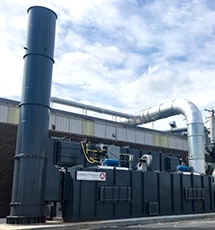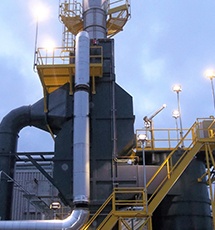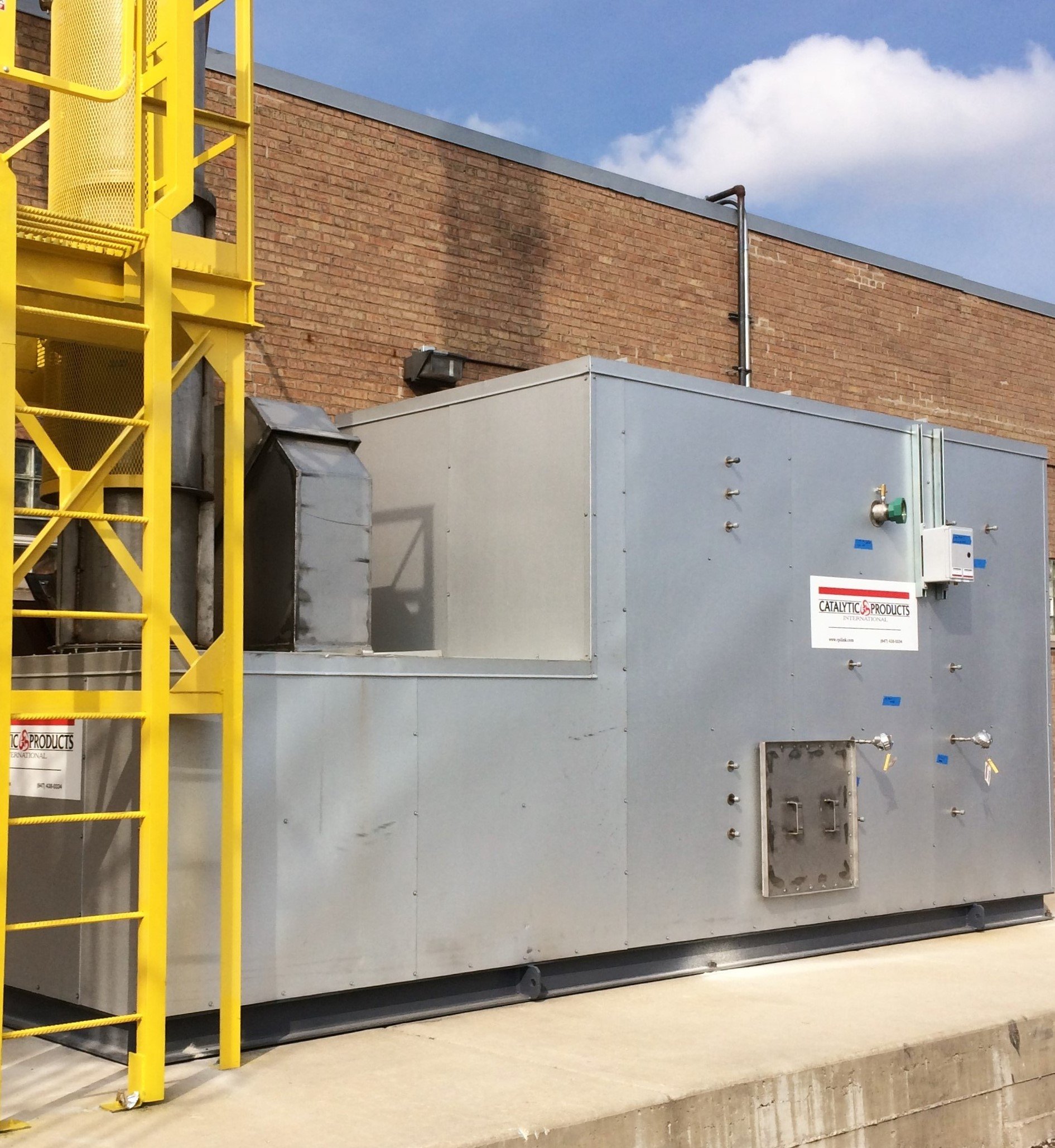Catalytic Products International (CPI) was selected by a large producer of bakery foods to install a Catalytic Oxidizer (CatOx) at a Midwest USA bakery for the abatement of Volatile Organic Compounds (VOCs) from a single bread line oven. The primary source of emissions at a commercial bakery is the tunnel oven, which releases carbon dioxide and VOCs such as ethanol produced during the yeast fermentation process.
- Our Company
- Products
- Catalytic Oxidizers
- Regenerative Thermal Oxidizer (RTO)
- Thermal Oxidizers
- Electric Catalytic Oxidizer
- Ductwork
- Filtration Systems
- Heat Exchangers
- Heat Recovery Systems
- Incinerators
- Installation Services
- Pre-Owned Equipment
- Rotary Concentrator
- Selective Catalytic Reduction
- Thermal Combustor System
- Wet Scrubber
- Aftermarket Services
- Industries
- Automotive
- Bakery Oven VOC Control
- Ceramic Manufacturing
- Chemical Processing & VOC Control
- Coffee Roasting
- Coil Coating
- Drum & Container Painting
- Flavoring & Fragrance
- Flexographic Printing & VOC Control
- Food Processing VOC Control
- Metal Decorating
- Metal Recycling & Shredding VOC Control
- Oil & Gas Processing
- Paint & Surface Coating
- PFAS Air Emissions Control
- Pharmaceutical & Medical
- Renewable Fuels
- Renewable Natural Gas (RNG)
- Rubber Products
- Semiconductor & Electronic
- Web Coating & Converting
- Case Studies
- Resource Center
- Request a Quote
- Our Company
- Products
- Catalytic Oxidizers
- Regenerative Thermal Oxidizer (RTO)
- Thermal Oxidizers
- Electric Catalytic Oxidizer
- Ductwork
- Filtration Systems
- Heat Exchangers
- Heat Recovery Systems
- Incinerators
- Installation Services
- Pre-Owned Equipment
- Rotary Concentrator
- Selective Catalytic Reduction
- Thermal Combustor System
- Wet Scrubber
- Aftermarket Services
- Industries
- Automotive
- Bakery Oven VOC Control
- Ceramic Manufacturing
- Chemical Processing & VOC Control
- Coffee Roasting
- Coil Coating
- Drum & Container Painting
- Flavoring & Fragrance
- Flexographic Printing & VOC Control
- Food Processing VOC Control
- Metal Decorating
- Metal Recycling & Shredding VOC Control
- Oil & Gas Processing
- Paint & Surface Coating
- PFAS Air Emissions Control
- Pharmaceutical & Medical
- Renewable Fuels
- Renewable Natural Gas (RNG)
- Rubber Products
- Semiconductor & Electronic
- Web Coating & Converting
- Case Studies
- Resource Center
- Request a Quote


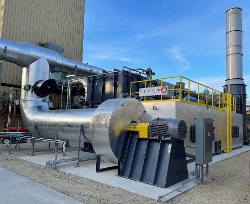
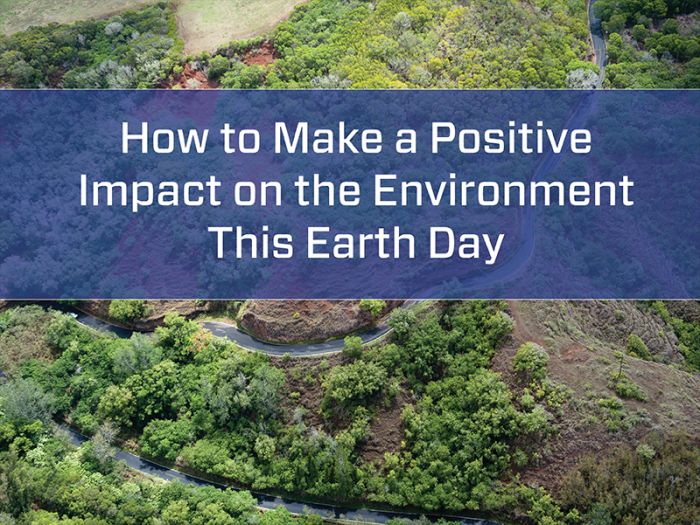
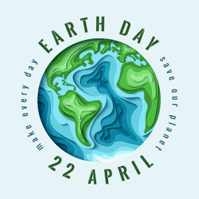 Friday, April 22, 2022, marks the 52nd
Friday, April 22, 2022, marks the 52nd 
